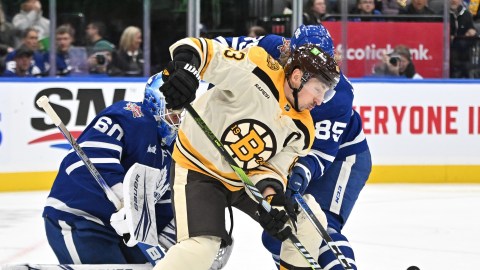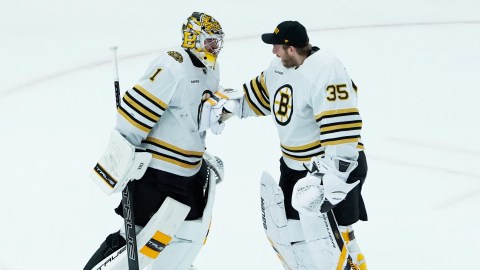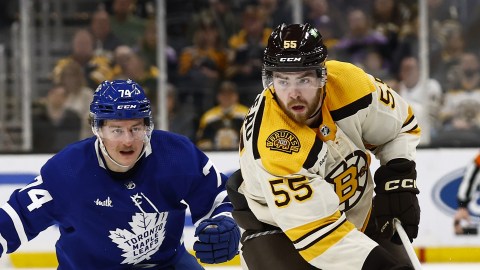The Bruins were a dominant team skating 5-on-5 throughout the regular season.
In fact, they led the entire NHL with 193 goals with a full complement of skaters on the ice during the regular season.
They're special teams play was more inconsistent, with a penalty kill strong for most of the year (11th in league, 83.0 percent) and a power play that finished in the middle of the pack (15th, 17.2 percent) but limped to the finish line with just two goals in 21 chances over the final 10 games.
That's two more goals than the Bruins have managed so far in the playoffs, when the importance of special teams play is usually magnified. Boston managed to win the Cup last spring despite a dismal power play, but they were determined not to put a strain on their team that way again this postseason.
But, three games in, the Bruins are just as ineffective with the man advantage as they were a year ago. In fact, the numbers are on pace to be even worse. Boston is on an even more futile pace than when they went 0 for 21 against Montreal in the opening round last year.
This season, they are 0 for 11 through three games, a pace to put them at 0 for 26 if this series went the full seven games.
On Monday, the Bruins were 0 for 5 with just four shots in 7:33 of power-play time. That comes after going 0 for 6 with 10 shots in 12:00 with the man advantage in the first two games in Boston.
The Bruins did find a way to score other than at full strength, though, as two of their four goals in Monday's 4-3 victory in Game 3, including the game-winner with 1:53 left in regulation, came with the sides playing 4 on 4 after matching penalties.
Despite the fact that Washington has arguably more high-end skill and speed in its forward corps led by Alex Ovechkin, Nicklas Backstrom and Alexander Semin, it was the Bruins who took advantage of the extra space for two crucial goals, with Rich Peverley opening Boston's scoring in addition to Zdeno Chara's game-winning tally.
Washington also managed one goal while playing 4-on-4 and had the series' first power-play strike, but Boston's ability to match that with its two 4-on-4 tallies put the Bruins on an even playing field despite the ongoing power-play struggles.
Having the Bruins take extra penalties to turn power plays into 4-on-4 situations isn't a solution, but Boston should try to look at their effectiveness with the extra space when both teams are a man down to try to find some solutions for their power play.
The way the Bruins spread out the Capitals defenders while 4-on-4, used movement and crossing plays to open up space, and created traffic in front are some of the tactics the power play has lacked. Those techniques should be even more effective with an extra attacker, but the Bruins have been guilty of staying too static and settling for perimeter shots too much on the power play. That has to change.
In the meantime, their even-strength prowess and strong penalty killing (8 of 9 so far in the series) just may be enough to advance past the Capitals. Just don't count on it being enough for another run all the way to the Cup. Sooner or later the power outage on the power play will have to be solved.
Have a question for Douglas Flynn? Send it to him via Twitter at @douglasflynn or send it here. He will pick a few questions to answer every week for his mailbag.



